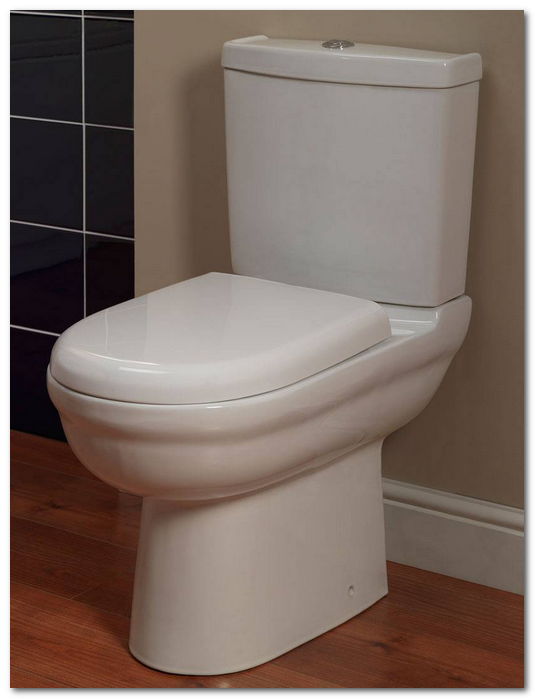Feces of a healthy person is brown in color. Black specks in stool are often an indication of some kind of internal bleeding. Such bleeding may occur due to varied conditions affecting the intestines, bowels, and other organs of the digestive system. Black specks in stool may also occur due to harmless causes such as intake of certain foods, beverages, or medications, etc.
Some of the common causes of digestive system bleeding are listed below.
Causes of black specks in stool
Black specks in stools are mostly caused due to digestive system bleeding which in turn may occur due to the below listed conditions:
- Gastritis: The digestive system disorder is characterized by erosion or inflammation of the stomach wall or lining. Gastritis may occur due to stomach lining irritation which may be caused due to infection by H. pylori bacteria, alcohol abuse, and prolonged ant-inflammatory drug use. It may be noted that the stomach wall consists of cells which secrete gastric acid that help the digestive processes. Damage of such cells can cause indigestion which in turn can lead to elimination of undigested food particles, and blood if any, along with stool in the form of black specks.
- Stomach ulcers: Ulcers refer to open wounds that bleed excessively upon touching. They may be caused due to excessive use of aspirin, ibuprofen, and other anti-inflammatory drugs, and/or H. pylori bacterial infection. Ulcers that develop on the stomach wall or lower area of the small bowels tend to bleed. Such blood may pass across the colon and combine with feces eventually causing black specks in stool.
- Mallory-Weiss Tear: It refers to rupture of the contact point or mucous membrane between the stomach and the esophagus. The tear may cause bleeding which is then eliminated from the body as black specks in feces. Forceful vomiting, prolonged and intense coughing, and retching, etc., may cause the tear to occur.
- Diverticulitis: It refers to inflammation of the diverticula. Diverticula are bulging masses or protruding pouches that develop on the walls of the colon/large intestine with the passage of time. Diverticular inflammation occurs due to infection of these pouches by bacteria; this may cause the sacs to inflame and burst. Such rupture eventually triggers internal bleeding from the rectal region, leading to excretion of stools with black specks. Doctors are not aware of the exact causes of diverticulitis, but sedentary lifestyle, smoking, low fiber intake, and an age of more than 40 years may increase the risk.
- Esophageal varices: In this condition, the lower esophageal veins experience abnormal swelling, which in turn tends to occur due to accumulation of blood that flows in reverse from the liver to the esophageal veins. Such reverse blood flow occurs due to circulation problems of the liver, which may be caused due to cirrhosis, hepatitis, alcohol abuse, and other liver diseases. Eventually, the swollen veins may rupture and seep blood which then passes into the bowels and gets removed as black specks in stool.
- Crohn’s disease: In this, patients suffer from inflammation of the digestive tract. The condition can affect any part of the digestive system, but in most cases, the large or small intestine often experience inflammation. Such swelling is not shallow and tends to affect the deeper tissues of the bowels. The exact cause of Crohn’s diseases is unknown, but a family history of the condition and smoking can increase the risk. Associated bleeding is what causes the abnormal coloring of feces.
- Anal fissures: The condition affects the anal canal, i.e., the portion between the rectum and the anus, and is marked by damage and tearing of the anal canal walls. It is predominantly caused due to chronic constipation which results in persistent excretion of hard stools. Anal fissures can cause a lot of pain. Passage of hard feces across the canal can further rupture its lining, eventually causing bleeding and black specks in stool.
- Colon cancer: Black specks in stool can occur when benign tumors present in the colon turn malignant. Such tumors may also bleed even when they are non-cancerous, leading to abnormal stool coloring. The cause of colon cancer is not known, but Crohn’s disease, smoking, sedentary lifestyle, ulcerative colitis, poor diet, and other chronic conditions of the bowels may increase the risk. Colon cancer is a life-threatening condition and needs to be treated immediately. A person may get colonoscopy done as a preventive measure to rule out this problem.
- Hemorrhoids: This condition is marked by swelling of the anal canal veins. Such inflamed veins may tear during a bowel movement, thereby causing bleeding and black specks in stool. Pregnancy, strained bowel movements, or excessive bowel movements may cause hemorrhoids.
- Dietary Reasons -Black specks in stool may also occur due to intake of certain foods, including iron-rich foods like fruits like cherries, bananas, blueberries, figs, and plum; spinach, legumes, and other dark green leafy vegetables; and egg yolk, red meat, and chicken. Intake of Pepto-Bismol or other bismuth containing drugs can also cause the fecal color to change.
Treatment of black specks in stool
Treatment of black specks in stool involves diagnosing the underlying causative disorder and then curing it as per standard therapeutic procedures. In common cases, the reasons are usually dietary or gastric conditions. But if the condition is accompanied by other symptoms or it persists after eliminating certain foods in the diet, then it is recommended to visit the doctor.
